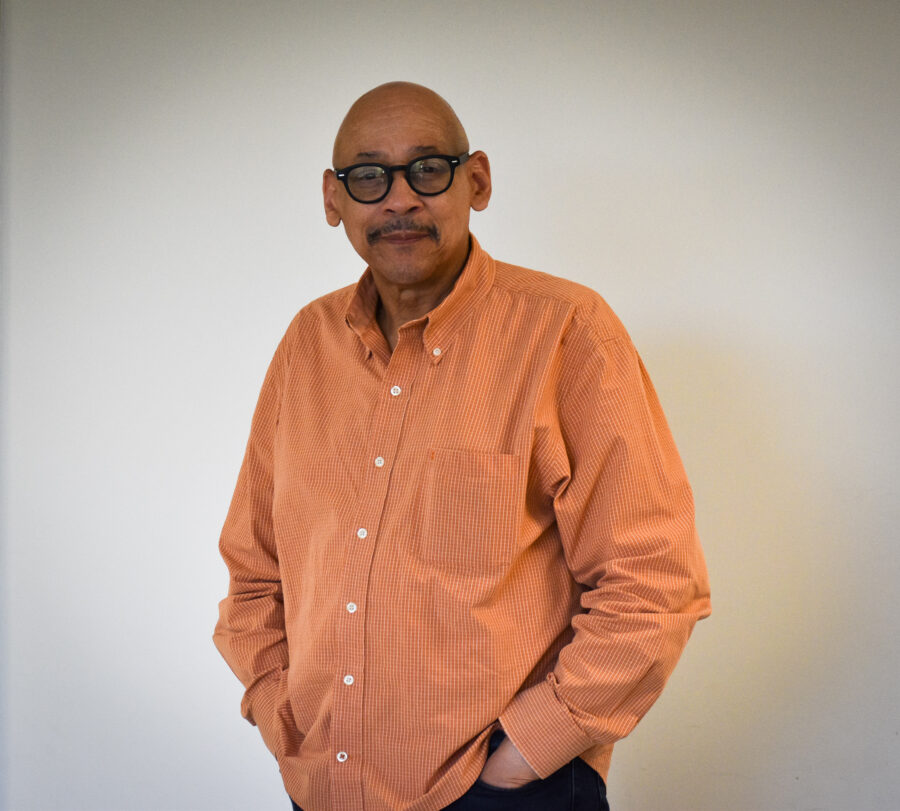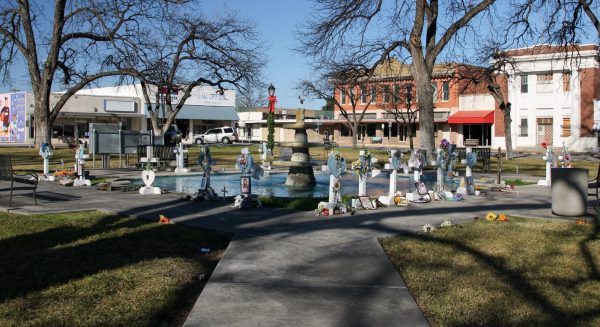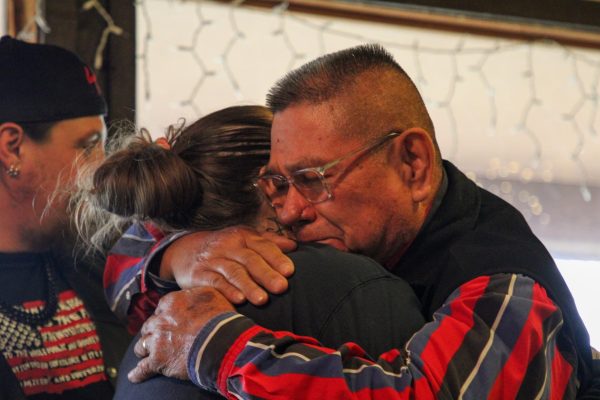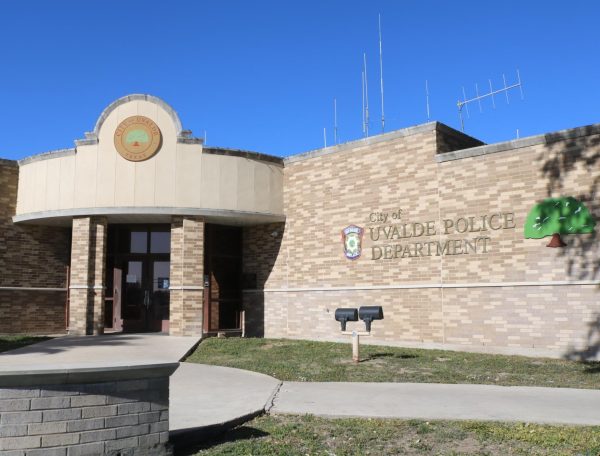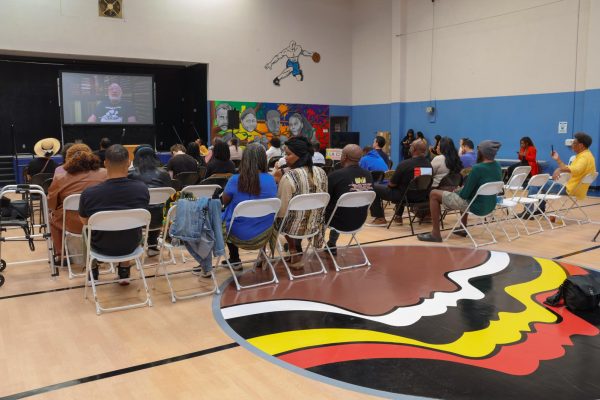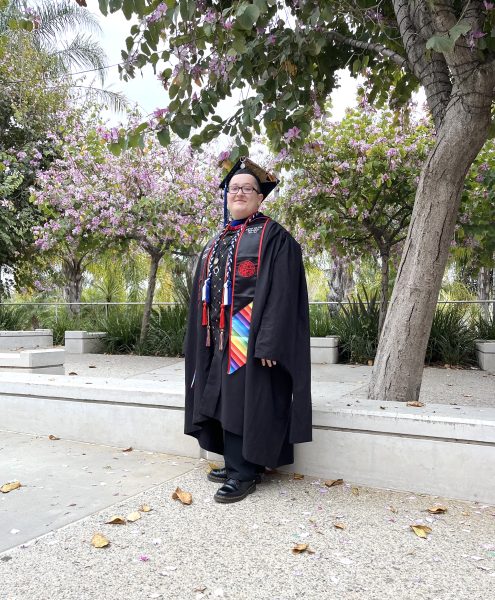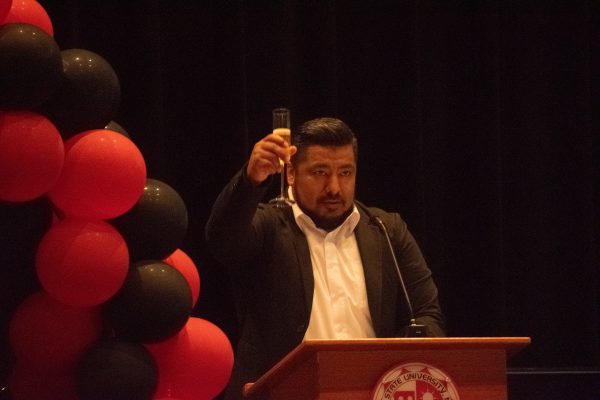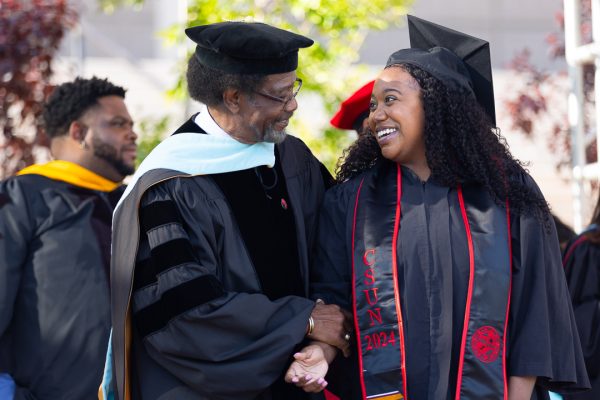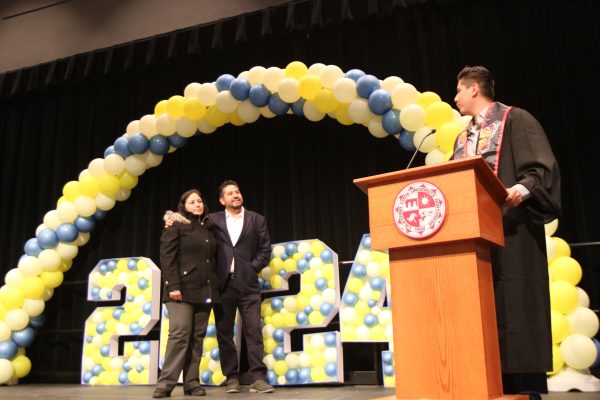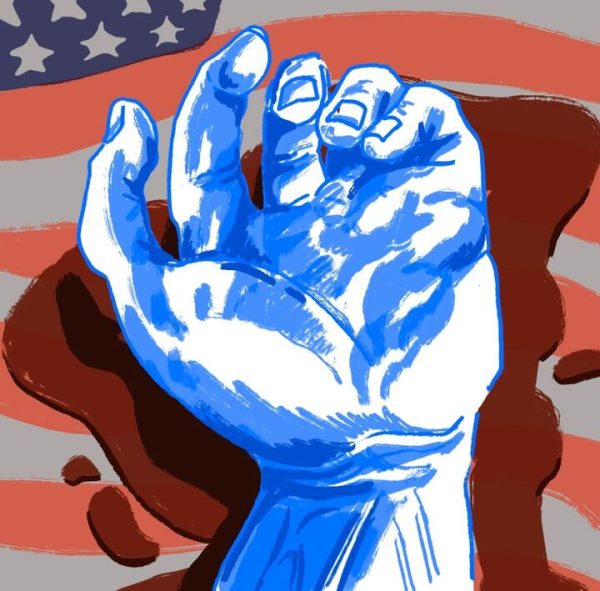CSUN professor Nate Thomas crafts his own destiny amid hardship
CSUN professor Nate Thomas poses for a portrait in Manzanita Hall on Feb. 9, 2023, in Northridge, Calif.
March 17, 2023
As a child, Nate Thomas’ father often took him to see films like “Gone with the Wind.” Together they marveled at the movie stars on the screen, watching from the theater’s balcony. The Jim Crow seating laws of the South still lingered in the North, though the section was not explicitly marked “colored.”
Thomas’ father loved Western films and knew every line from “Sunset Boulevard.” At a different time, Hollywood would perhaps be more than a dream.
Instead, at 18, he hopped on a train from Mississippi to the steel mills in Ohio. Thomas’ parents wanted a better life for him, one beyond the dangerous and dirty toils of his father’s hard labor.
“For two summers, they would hire college help at the steel mill,” Thomas said. “That’s the hardest work I’ve ever done. I’ll never want to do that. I knew I was gonna stay in college.”
Student thank-you cards and a few of his accolades are displayed around Thomas’ office. The film professor serves as head of the film production option in CSUN’s Department of Cinema and Television Arts.
Thomas is the first Black film production program head at a California State University. The National Congress of Black Women Los Angeles Chapter recognized the achievement with the Good Brother’s Award. The nonprofit works to increase the education and participation of African American women and youth in politics and culture. Thomas also serves as the California Faculty Association Northridge Chapter president.
The professor was the first in his family to graduate from college. He earned a Bachelor of Arts in theater from St. Edward’s University in Austin, Texas. Using student loans and scholarships, he later earned a Master of Fine Arts in cinema production from the University of Southern California in 1985.
At USC, Thomas learned from renowned filmmakers. The students in his classes descended from film royalty, names Thomas knew. He said that when he graduated, the lineage of his white classmates granted them immediate entry into the industry. He left with zero job offers and no connections.
“Film, it’s a business of nepotism,” Thomas said. “Black people traditionally didn’t have families in this business, so you had nobody to pass it on to.”
Thomas found work counseling youth at a group home for minimum wage. In his spare time, he hustled any film-related freelance projects he could. Five years later, he was offered his first long-term job, filming the behind-the-scenes featurette for “Ghost Dad.” The film was directed by Sidney Poitier and starred Bill Cosby – a name Thomas reluctantly says. The professor credits the two stars, along with the Rev. Jesse Jackson and producer Stan Robinson, with helping him establish a foothold in the industry.
In 1999, Thomas directed and co-wrote “East of Hope Street,” based on his experiences working in the group home. In 2014, Thomas won an Emmy for a 30-second public service announcement on intellectual property theft and cyberbullying titled “Family Dinner.”
“My parents taught me you persevere,” Thomas said. “My dad said ‘whatever you do, work hard at it.’ They did it. They worked hard. I have. If it’s your dream, just go for it.”
